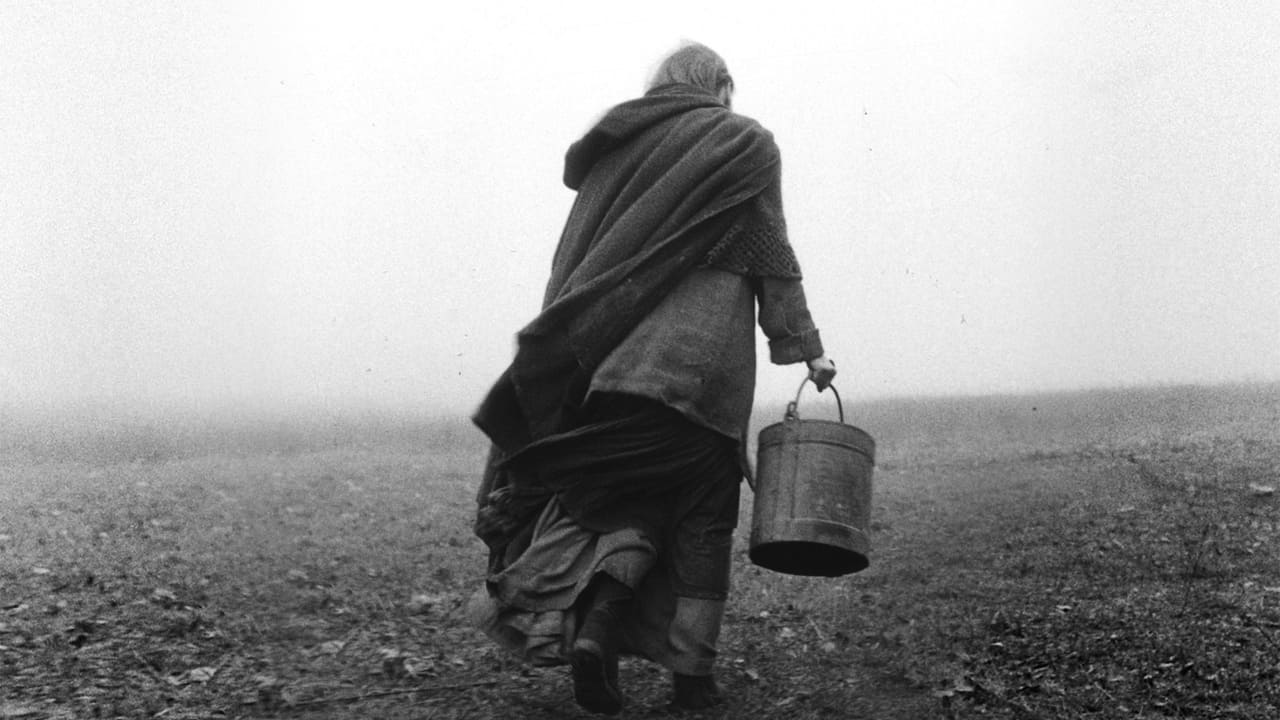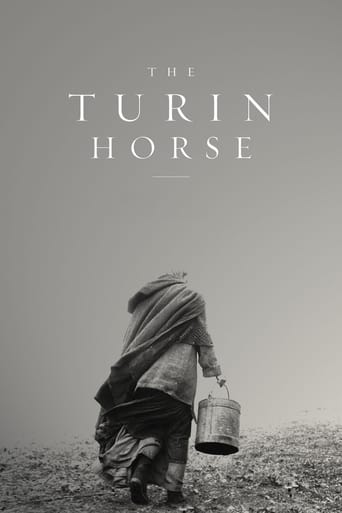



I like the storyline of this show,it attract me so much
View MoreYawn. Poorly Filmed Snooze Fest.
I like Black Panther, but I didn't like this movie.
View MoreExcellent, a Must See
The movie begins with a plane of a horse pulling a cart that lasts four minutes twenty seconds, The amount of things that must count! No, it does not count anything that has not been counted in the first five seconds and would be long.This type of films that, because some critics say, have to go to the history of cinema, I hope they never get to do it. Because the truth is that history, the film has little.I would give just as much as thirty planes or five hundred, the problem is that the planes tell nothing. Once you have counted the first day, the rest is repeated. If he had done a short, surely it would have been the short of his life, but it is that each thing has its own.That obsession with making plans sequences in which the camera moves alone, without following anything, to tell anything, there are times when it leaves things totally dark or flat and you do not see what happens, if anything happens.We would say that the actors are fine, if they are great, the truth is that they are very well, and they get to do their role for two and a half hours, only their role does not have much to say.The photograph is beautiful, it gets you into that world, but in a few minutes you are bored.I do not think this movie is a movie, I would say that it does not reach a movie
View MoreIn 2011 Béla Tarr, a Hungarian director who had drawn acclaim for his distinctive style of long takes à la Andrei Tarkovsky and a bleak and sardonic view of human existence, released what he stated would be his last film: THE TURIN HORSE. The film's genesis is rooted in a conversation between Tarr and the Hungarian novelist Laszlo Krasznahorkai some years before: Krasznahorkai recounted the story Friedrich Nietzsche's famous breakdown in the streets of Turin after watching a cabman cruelly beat his horse. We know, Krasznahorkai noted, that Nietzsche lived on for another decade, mute and demented, in the care of his family, but what happened to the horse? Thus the two decided to make a film, but it would not be a historical film about late 19th-century Turin. Rather, the Nietzsche story only served as an initial inspiration for a more universal drama.After an introduction spoken by a narrator that briefly tells the Nietzsche story, we are introduced to a horse and his cabman, Ohlsdorfer (János Derzsi). With much effort -- the opening take of the horse pulling the cart on the road is several minutes long -- Ohlsdorfer reaches a house and a barn in the minute of a nondescript wilderness, where a savage wind blows nonstop. His daughter (Erika Bók) appears, and the two struggle to unharness the horse and lead it into the barn as the wind howls. Immediately we see that they lived alone and in poverty. The film is divided into a series of episodes, "The First Day", "The Second Day" etc. where Ohlsdorfer and his daughter repeat the same routine: she helps Ohlsdorfer dress or undress (he is partly lame), she boils potatoes that she and Ohlsdorfer eat, piping hot, with their fingers. Yet in spite of this grinding routine, each day shows the action from a slightly different angle, and we become aware that the world in which they live is breaking down. Everything happens with a minimum of dialogue, except for two appearances by visitors to their homestead that are grim portents. The horse itself gets comparatively little screen time, but is such a potent symbol that it does feel like, as Tarr calls it in the film's credits, the "main role".THE TURIN HORSE is shot in only 30 takes by cinematographer Fred Kelemen; considering the film is 2 hours 35 minutes long, that means an average shot length of 5 minutes. Tarr's visual aesthetic of very long takes is not for everyone, but if you surrender to its hypnotic effect, it can be very powerful. The slow pace puts the viewer into a hyper-aware state where you are familiarized with the most minute details of the set, some of which will later prove important in the action, while others are simply distinct and memorable quirks. It is this elevating of the stage set to nearly a character in itself that is one of Tarr's major innovations. The bleakness of Tarr and Krasznahorkai's vision is not completely oppressive. You might find some humour here, even if it is the blackest humour imaginable. THE TURIN HORSE can be readily compared to the more austere plays of Samuel Beckett which reveal human existence to be absurd, but lampoon attempts at philosophy or personal foibles in ways that can make one grimly chuckle.This sort of film isn't for everyone. Needless to say, if you like movies as simple entertainment and don't go for "arthouse" efforts, then you should steer clear of this. For more open-minded cinephiles, I'd recommend seeing the work of Andrei Tarkovsky first before you decide to go on to the even more extreme aesthetic of Tarr. But I personally found this (like a few of Tarr's prior efforts) to be a very moving experience, one that I am sure I will repeat from time to time over the years. The visual poetry of THE TURIN HORSE is incredible.
View MoreGirl:What it is Papa? Father:I don't know.. It is my first Bela Tarr movie and I don't think that words can help me to write a review on 'The Turin Horse' and it is my first review. I have been watching movies since my childhood, reading literature and philosophy in order to understand human condition but the visual and sound sensation I have had with 'The Turin Horse' is matchless. There is a modern novel in which a girl commits suicide because she think that she had to brush her teeth everyday with the same brush. Bela Tarr's characters are eating raw potatoes everyday,fortunately they don't commit suicide but what is the point in living? Bela will compel you to think about it. Father: Eat. we have to... To be very honest 'The Turin Horse' is the most powerful work of cinematic art I've ever came across, it is not social but ontological rather cosmological. What it is to be human? Want to know? Go and watch it, the 'heaviness of human existence' to put it in Bela's words.
View MoreA film like The Turin Horse makes me feel a little stupid. Perhaps I am just not 'getting' it, as apparently most critics did when they saw the film - presumably, according to the director (still in his 50's) his last). And it's not like I came to this filmmaker ignorant of his craft and style; sitting through all 450 minutes of Satantango was one of the most mysterious, satisfying if strange filmmaking experiences I've ever had, and that was not without its stretches of time without much "going on" as it were in the usual narrative sense.The idea with The Turin Horse, co-directed by Agnes Hranitzszky, is that Frederich Nietzche saved a horse from being whipped in a town square in the late 19th century, and the horse was removed from its owner and given to another. Tarr could have filmed that sequence - which happened in real life, and further sounds to me like the dream sequence from Crime & Punishment involving a whipped horse, certainly from the opening narration a very cinematic and dramatic turn of events - but he chooses to go right into the story of this old farmer bringing the horse to his tiny not-much-of-a-farm with his daughter, and watch over the course of five/six days their downfall.The thing you should know going into this, if you haven't seen Tarr before, is that he does long takes. All the time. Maybe the shortest shot in this runtime is about 4 minutes. It's certainly not easy to pull this off, everything has to be choreographed and timed just right, and that is certainly a testament to Fred Kinemen's cinematography. For me, actually, if it's anyone's masterpiece it's Kinemen's, who in black and white and usually in a camera that moves, gets the dust and wind and darkness and despair down just right visually speaking. There are many shots in the film, like the one where the farmer and his daughter, in the one sort of moment of story "progression", tries to get away from the farm to somewhere else, and the camera shows them off on the hillside, with a dead, lonely tree up top, and the wind blowing in the foreground. I can't fault visually speaking how it looks - just what is put into it, the content.But why then say that this movie makes me feel 'stupid'? I sensed there was a greater, more profound message here, and I didn't 'get' it, I guess. Perhaps there's something to be said for this being some sort of transcendental experience or other, that what the movie is pretty much 'about' - the pitiless routines of cooking food, fetching water from a well, trying to make a horse eat, putting on clothes - is supposed to make us hypnotized. The sort of real-time, meditative, sort of deadpan and minimalist filmmaking of Satantango had that too, as I'm sure Tarr's other films do, but there was more going on there, more to actual see and note in the characters. Maybe that's part of the point, that this farmer and his daughter, without any electricity or books (well, until a gypsy happens to give one to her, not a long story, they happen by the house in one of the only times other humans interact with them) or any curiosity past living from one day to the next, have made this life and eventual death for themselves. And I can be mesmerized watching routine; Jeanne Dielman is one of the highlights of 1970's French cinema.So what's missing here? Is it missing in myself to not meet the material more than halfway? I don't know. There may be something that Nietzsche is used as this catalyst for the story at all - that there's something to these lives 'Between Good and Evil', or to his philosophy expressed here. Maybe it's about how the breakdown of the world is meant to be comparable to Tarr seeing the breakdown of cinema, with himself leaving the medium (at least for the time being). And to be fair, as more 'things' happen to this father and daughter, I started to get more intrigued. I wanted to meet the film more than halfway, as this director is the epitome of uncompromising, dead-serious art house filmmakers. And there's just enough for me to recommend it to die-hard admirers of this sort of rigorous filmmaking with maybe like 50 shots in the whole run time. I simply wish there had been a sliver more 'there' there in terms of these two people, despite that being the point of the nothingness of existence and so on.
View More